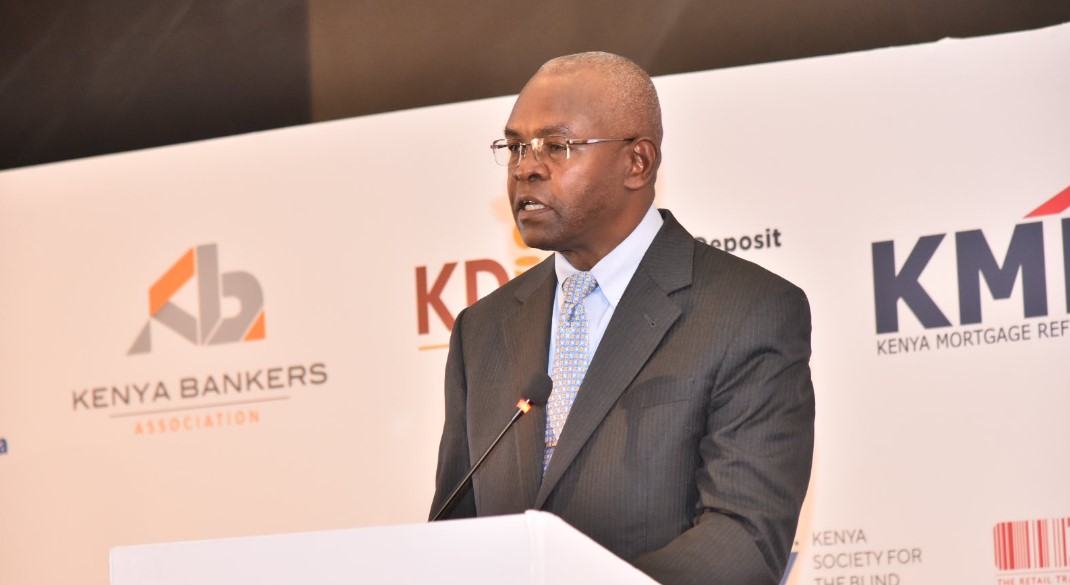Banks face daily fines for non-compliance with CBK lending rate cuts

The CBK is determined to ensure that the reductions in the central bank rate benefit the broader economy, particularly in the private sector.
In a move set to impact the banking sector, the Central Bank of Kenya (CBK) has announced that it will impose daily fines on banks that fail to pass on reduced interest rates to borrowers.
The penalties will be enforced starting in June, following a comprehensive inspection of banks to ensure compliance with the CBK’s directive to lower loan charges in line with its risk-based credit pricing model.
More To Read
- Loan defaults surged to 17 per cent in 2024 due to tough business climate - CBK
- Kenya’s mobile money agents drop by 4.8 per cent as customers go fully digital
- CBK cuts lending rate to 9.5 per cent in seventh straight easing move
- More women turn to digital loans as smartphone use spurs financial inclusion
- 11 banks fined for exceeding lending limits, failing capital requirements
- Kenyan shilling holds steady at 129 against the dollar for a year
CBK Governor Kamau Thugge confirmed that inspections are underway, with 13 banks having already been reviewed.
The regulator aims to complete the inspections of all 38 commercial banks by June.
“We will soon start having discussions with the boards of institutions with complete inspections. Following that, decisions would be made as to what kind of penalties, if any, that will be brought on board,” Thugge said during a media briefing on Wednesday.
The directive from CBK came after it was discovered that some banks had not passed on the reductions from the central bank rate (CBR), which has dropped significantly from 13 percent to 10 percent.
As of February, 14 out of 38 commercial banks had yet to lower their lending rates accordingly. Banks such as Citibank, Absa, Standard Chartered, Victoria Commercial, and Stanbic were among the few that had complied with the rate cut.
The fines for non-compliance could be hefty. According to Section 55 of the Banking Act, banks could face a penalty of up to Sh20 million, or three times the financial gain they made from failing to reduce rates.
Additionally, banks will incur a daily penalty of up to Sh100,000 per violation, and executives could be held personally liable with a fine of up to Sh1 million.
This punitive measure comes as part of CBK’s ongoing efforts to ensure that the benefits of reduced interest rates reach borrowers.
Despite these efforts, private sector credit growth remains sluggish, and the easing of monetary policy by the CBK has yet to stimulate a substantial recovery.
Recently, CBK reduced its benchmark lending rate further from 10.75 percent to 10 percent, with the hope of encouraging banks to offer more favourable terms to borrowers. The regulator also made adjustments to its interbank market rate and reduced penalties for emergency borrowing by banks.
As the June deadline approaches, banks will be under increasing scrutiny, and those failing to comply could face serious financial repercussions.
The CBK is determined to ensure that the reductions in the central bank rate benefit the broader economy, particularly in the private sector.
Top Stories Today
- National Assembly approves Ruto’s nominees to police service commission
- CJ Koome, AG Oduor take opposing views on anticipatory bail amid Ruto criticism
- Activists raise alarm over delays in 'Shakahola 2' exhumations at Kwa Binzaro
- Garbage dumping returns to Eastleigh road reserves as residents blame lax enforcement
- Raila pushes for full devolution of schools, roads and key funds to counties
- Fuel prices for petrol and kerosene drop by Sh1 as diesel remains unchanged













































